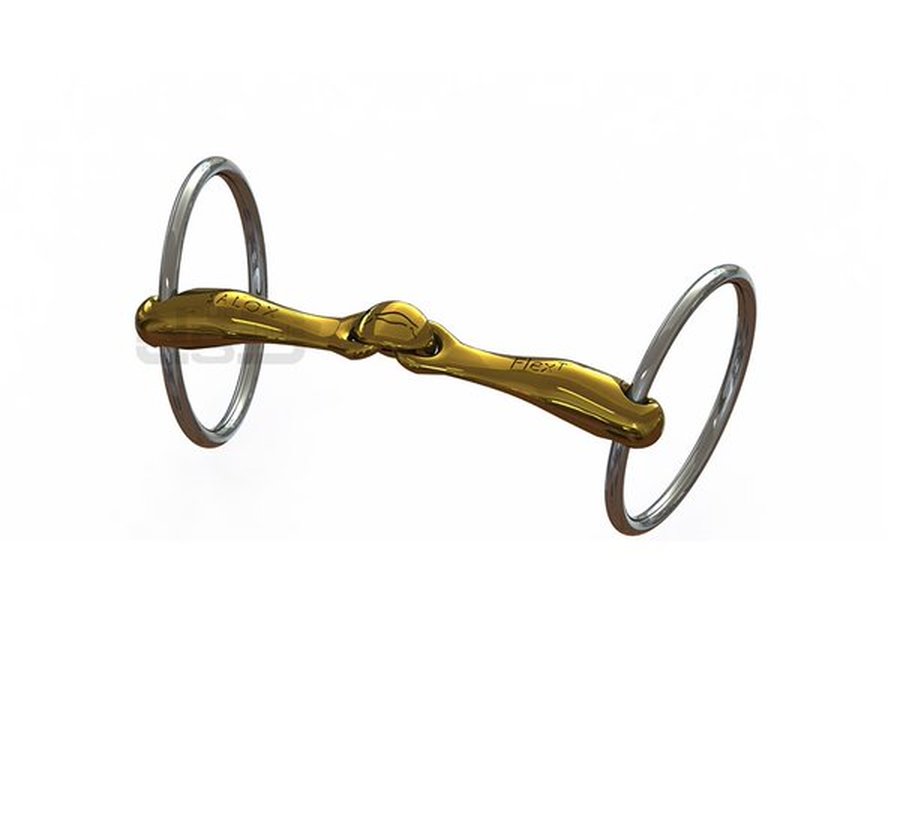What is the Softest Bit for a Horse? The softest bit for a horse is typically considered to be either a snaffle or mullen mouth bit. A snaffle has no joint and is generally the most commonly used type of bit because it does not apply pressure on sensitive areas of the horse’s mouth such as the tongue, bars or roof. The mullen mouth bit also has no joint but provides more control than a regular snaffle bit due to its curved shape which puts even pressure across the entire length of the horse’s lips and tongue.
Both types of bits should have rounded edges that are smooth enough to prevent rubbing and pinching in order to ensure comfort while riding.
The softest bit for a horse is often referred to as a ‘mullen mouth’ bit. This type of bit has no joint in the middle, allowing it to be more flexible than other types of bits and therefore much softer on the horse’s mouth. The mullen mouth design also helps to evenly distribute pressure across the tongue and bars in the horse’s mouth, creating a more comfortable experience for your equine friend.
Best Bits for Horses With Fussy Mouths
When choosing a bit for horses with fussy mouths, it is important to look for one that is mild but effective. A mild bit should be narrow in the mouthpiece and have smooth edges so as not to cause too much discomfort. It should also have enough leverage to help ensure control without causing pain or resistance.
In addition, you may want to look for bits that are designed specifically for horses with sensitive mouths, such as snaffle bits or even an eggbutt snaffle which will provide more stability and comfort than other types of bits.

What is the Most Comfortable Bit for a Horse?
A horse’s comfort is of utmost importance, as it not only affects how the animal performs but also its overall health and well-being. The most comfortable bit for a horse is one that fits properly and allows the rider to communicate effectively with minimal discomfort or pain to the animal. A good fitting bit should be made of quality materials that are soft enough so as not to cause soreness or abrasions in the horse’s mouth, yet strong enough so as not to break when pressure is applied by the rider.
It should have an appropriate width, length and thickness relative to both the size of the horse’s head and mouth and also according to what type of riding activity will be done. Depending on whether you’re doing light training or more intense competing, different types of bits may be preferred due to their ability to give finer control over rein aids during certain activities such as jumping or dressage. Ultimately, finding a bit that fits your horse’s head comfortably while allowing effective communication between you and your mount can help ensure long-term success in any equestrian discipline!
What are the Most Comfortable Bits?
When it comes to comfort, there is no doubt that the most comfortable bits are those that allow you to feel relaxed and at ease. From the softest of fabrics, such as cotton or linen, to well-constructed leather furniture pieces, there are a range of items on the market that can give you all the comfort you need for your home or office. In addition to this, investing in ergonomic chairs with lumbar support and adjustable armrests will help provide more support for your back throughout long days spent sitting at a desk.
However, if you’re looking for something extra special in terms of comfort then memory foam mattresses could be just what you need – offering superior levels of cushioning as well as breathability and temperature control. Ultimately, when it comes down to finding the most comfortable bits of furniture and accessories for your home or workplace it’s important to invest in quality over quantity so that they last longer but also give you optimum levels of relaxation every day.
What is the Least Painful Bit for a Horse?
When it comes to bits for horses, finding the least painful one is an important factor. The bit should be comfortable in the horse’s mouth and not cause any pain or discomfort. A well-fitted bit with a soft material such as rubber can help reduce pressure points in the horse’s mouth while still providing control.
Loose rings are also beneficial since they allow more movement of the cheek pieces, thus creating less pressure on sensitive areas of the face like lips and corners of the jaw. Hanging cheek snaffles are also great choices because they provide direct pressure on the tongue and bars without putting too much strain on other areas. Finally, using natural materials such as leather instead of metal is preferable since it allows for more flexibility and comfort when compared to hard metals that may cause pinching or rubbing in certain places.
In conclusion, there isn’t necessarily one ‘least painful’ bit for horses but rather a combination of features that can make all difference between an uncomfortable ride and a pleasant one!
What Bit is Best for a Horse With a Sensitive Mouth?
When it comes to choosing a bit for a horse with a sensitive mouth, there is no one-size-fits-all solution. The best bit for a sensitive horse depends on the individual needs of the horse and its rider. In general, milder bits such as loose ring snaffles or eggbutt snaffles are good choices because they provide maximum tongue relief and encourage the horse to accept contact without causing too much discomfort.
Additionally, using rubberized bits can be beneficial since the rubber has more give than metal and won’t pinch or cause pain when used correctly. It’s also important to use proper bitting techniques in order to ensure that your horse is not getting hurt by sharp edges or overly tight pressure points from ill-fitting bits. Ultimately, selecting the right bit for your sensitive-mouthed equine will require trial and error until you find something that works well both for you and your mount!
How Bits Work – Gags, Snaffles & Their Actions
Conclusion
In conclusion, the softest bit for a horse depends on the individual horse’s preferences and what works best for them. While certain bits may be softer than others, it is important to remember to always use a good quality bit and correctly fit it to your horse’s mouth in order to get the most out of your riding experience. Ultimately, with patience, experimentation and proper care you will find which type of bit provides the right amount of control while also being comfortable enough for your horse.
Janet G Kulick is an experienced horse rider, trainer, and owner of the informative horse blog, Horseray.com. Her engaging writing style and wealth of knowledge on horse care, riding, and training make her a trusted source for horse enthusiasts worldwide.






